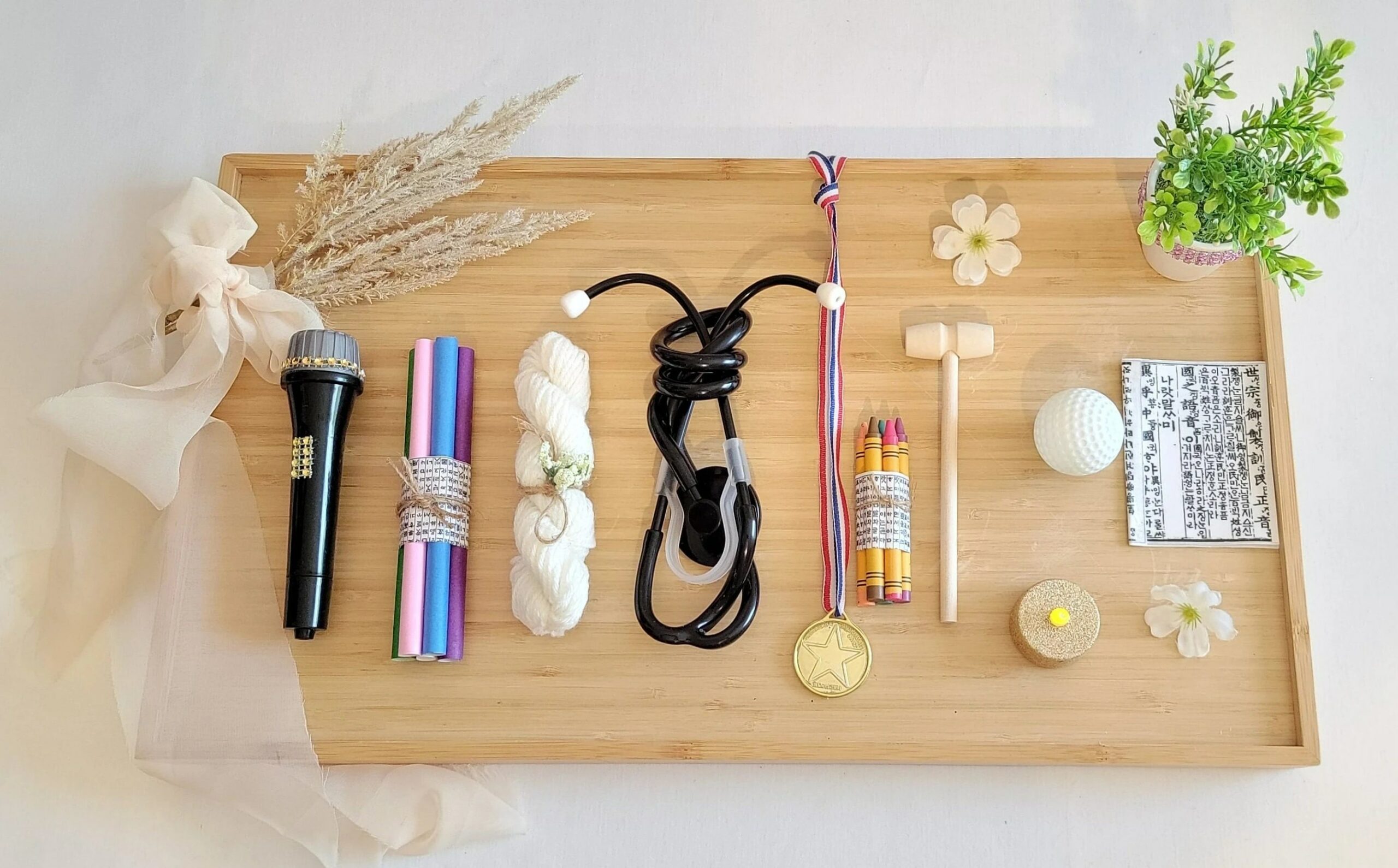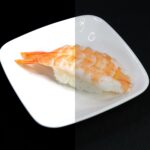Doljabi: A centuries-old Korean tradition where a baby’s future is playfully predicted by the objects they choose during their first birthday celebration (Doljanchi). More than just a game, Doljabi offers a glimpse into Korean cultural values, emphasizing education, prosperity, and family legacy. From traditional items like rice and money to modern additions like a stethoscope or microphone, Doljabi reflects the evolving aspirations of Korean society. Planning a Doljanchi? This guide covers everything from the symbolic meaning of Doljabi items to essential tips for hosting a memorable celebration. Unleash your inner Pokémon master with our exhilarating favourite pokemon chooser.
Understanding Doljabi and Doljanchi
Doljabi and Doljanchi—while intertwined—are distinct elements of a Korean first birthday celebration. Doljanchi is the grand celebration itself, a festive occasion marking a child’s first year of life. Doljabi, the highlight of the Doljanchi, is the fascinating fortune-telling ritual where the baby selects an object representing their potential future. This tradition, deeply rooted in Korean history, originally celebrated a child’s survival to their first year, a significant milestone in times of high infant mortality.
The Doljabi Ritual: A Glimpse into the Future
At the heart of the Doljanchi lies the captivating Doljabi ritual. A variety of objects, each carrying symbolic meaning, are placed before the one-year-old, who is often dressed in a vibrant hanbok (traditional Korean attire). The child, amidst the joyful anticipation of family and friends, selects an item or two, playfully foretelling their potential career path, talents, or personality traits. This seemingly simple act connects generations, preserving Korean heritage and celebrating new life.
Traditional and Modern Doljabi Items
The items presented during Doljabi offer a fascinating blend of tradition and modernity. Traditional objects, like rice (symbolizing abundance and a good harvest, potentially suggesting financial security), money (representing wealth and possible entrepreneurial spirit), and a book (signifying intelligence, scholarship, and a love of learning), are often accompanied by contemporary objects like a stethoscope (representing a caring nature and a possible medical profession), a microphone (suggesting a powerful voice and a path in entertainment), or a computer mouse (hinting at technological aptitude and innovation in the digital age). The table below offers a more detailed look at some common Doljabi items, their traditional interpretations, modern adaptations, and possible career paths each item may probably suggest:
| Item | Traditional Meaning | Modern Interpretation | Possible Career Paths |
|---|---|---|---|
| Pencil/Brush | Scholar, Intellectual | Writer, Artist | Author, Illustrator, Designer, Teacher, Professor |
| Money/Coins | Wealth, Prosperity | Finance, Business | Banker, Accountant, Entrepreneur, Investor |
| String/Yarn | Long life | Creative Arts, Dexterity | Craftsperson, Designer, Musician, Surgeon |
| Book | Scholar, Intelligence | Education, Research | Librarian, Teacher, Researcher, Writer |
| Bow & Arrow | Military Prowess | Leadership, Athleticism | Athlete, Coach, Military Officer, Executive |
| Medicine Pot | Healer, Doctor | Medicine, Healthcare | Physician, Nurse, Pharmacist, Therapist |
| Medallion | High-ranking Official | Leadership, Influence | Politician, CEO, Manager, Community Leader |
| Food (Rice) | Abundance, Sustenance | Culinary Arts, Hospitality | Chef, Baker, Food Critic, Nutritionist |
| Microphone | Performer | Singer, Broadcaster | Singer, Actor, News Anchor, Podcaster |
| Gavel | Judge, Lawyer | Law, Justice | Judge, Lawyer, Mediator, Advocate |
| Stethoscope | Doctor | Medicine, Healthcare | Physician, Nurse, Veterinarian, Medical Technician |
| Computer Mouse | N/A | Technology, IT | Software Developer, Web Designer, Data Scientist, Systems Analyst |
| Smartphone | N/A | Communication, Digital Media | Social Media Manager, App Developer, Entrepreneur |
It’s worth noting that these interpretations are not fixed and can vary between families. It is likely that a child choosing a stethoscope might not become a doctor but could indicate other characteristics like a caring and empathetic personality. Some experts suggest that the choice could also reflect an interest in science or well-being more broadly. The inclusion of modern items highlights the evolving aspirations of Korean society and adds a layer of personalization to the tradition.
Beyond Doljabi: The Richness of Doljanchi
While Doljabi is undoubtedly the focal point, the Doljanchi celebration encompasses a wealth of traditions that enrich the experience. The dolsang, a lavish table laden with symbolic food offerings, traditionally presented to deities, is now a feast for guests and a symbol of good fortune for the birthday child. This, along with the vibrant decorations, colorful hanbok, and the warmth of family and friends, creates a joyful and memorable atmosphere. The dolsang can include various symbolic foods alongside the more modern elements of a birthday cake. These traditional foods may offer their own layer of symbolic meaning, adding another dimension to the celebration.
Planning Your Doljanchi: Tips and Ideas
Planning a Doljanchi involves a blend of tradition and personalization. Consider these elements when organizing your celebration:
- Venue: From intimate home gatherings to larger banquet halls, choose a venue that suits your guest list and desired atmosphere.
- Decorations: Traditional Korean banners and intricate paper crafts can be complemented with personalized touches reflecting your family’s style and the birthday child’s personality.
- Doljabi Setup: Arrange the Doljabi items on a low table, adorned with a decorative cloth and traditional elements, ensuring easy access for your little one.
- Food: Traditional Korean cuisine is customary, but incorporating modern favorites or dishes reflecting your family’s heritage is a welcome touch.
- Attire: Dressing your child and family members in colorful hanbok adds a touch of cultural elegance.
- Capturing Memories: Preserve these precious moments through photographs and videography.
Who Celebrates Doljabi?
Doljabi is primarily celebrated by Korean families worldwide, acting as a vibrant connection to their heritage. It allows them to pass down traditions and reinforce their cultural identity, especially for those living outside of Korea. While Doljabi photos capture a beautiful moment, they also serve as a tangible link to their roots and a celebration of family bonds. Discover a world of incredible feats for gymnasts or bowlers and push the boundaries of human potential.
The Enduring Significance of Doljabi
Beyond the playful predictions and festive atmosphere, Doljabi and Doljanchi embody the deep love of parents, the joy of celebrating a child’s first year, and the hopeful anticipation for their future. This adaptable tradition reflects the enduring values of family, community, and the power of hope, creating a lasting memory cherished for generations. While the chosen item might not dictate destiny, it symbolizes the hopes and dreams families have for their children, a testament to the timeless human desire to envision a bright future for those we love.
- Understanding GVAA Rates: A Practical Guide for Voice Actors and Clients - December 25, 2024
- Resuming Intimacy After Endometrial Ablation: A Guide to Healing and Reconnection - December 25, 2024
- Homunculus Servant 5e: The Ultimate Artificer’s Guide (Stats, Strategies, and Secrets) - December 25, 2024















